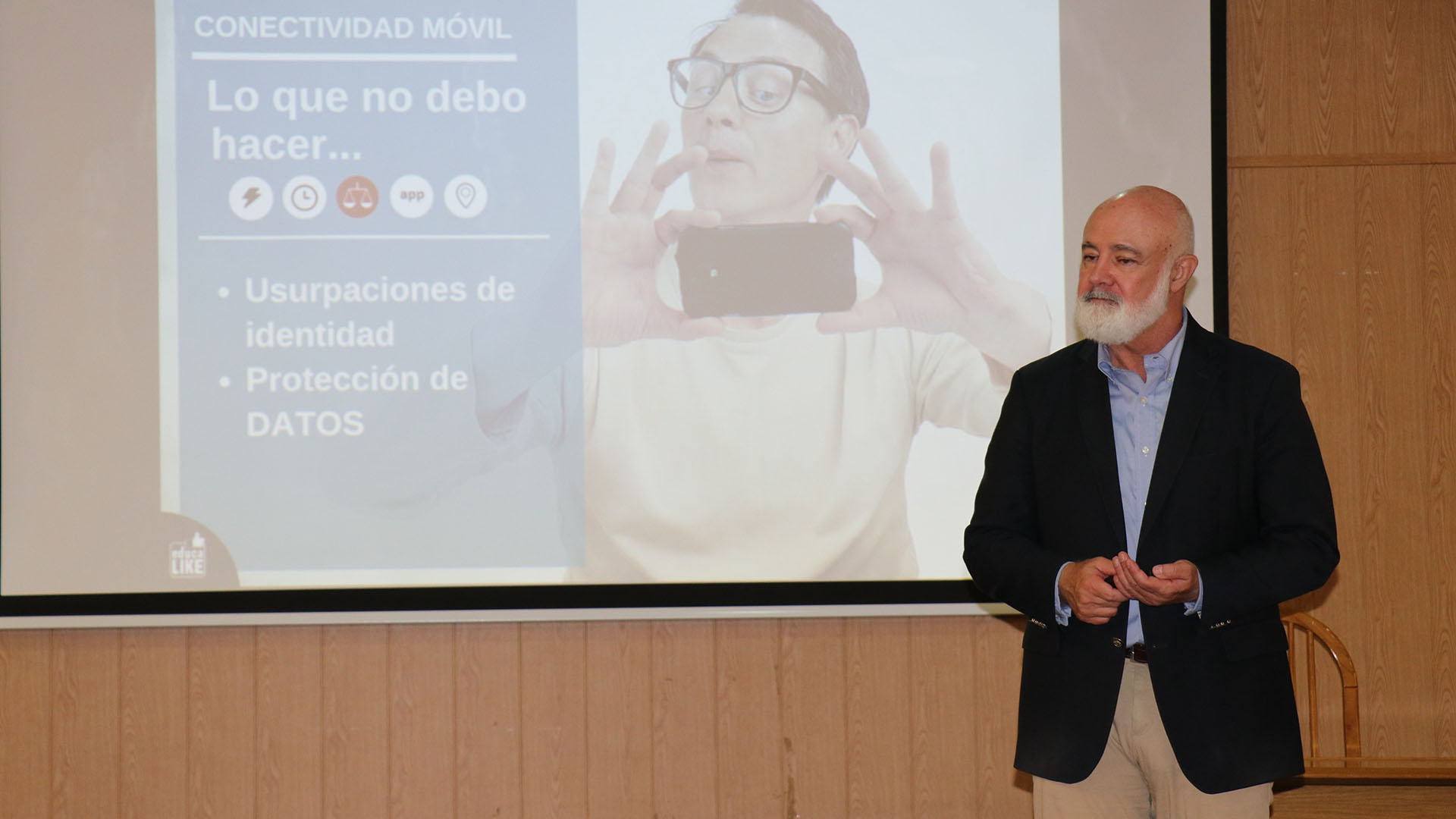Casvi Villaviciosa International School has recently concluded its programme of talks on digital health, given by Educalike expert Eduardo Cánovas. This initiative has allowed our Primary and Secondary School students to gain practical, responsible and adapted knowledge about the use of new technologies.
EDUCATION IN DIGITAL SKILLS FROM AN EARLY AGE
Each school stage received content adjusted to their age and needs:
- 5th Grade Primary School → Safe and responsible use of mobile phones and tablets.
- 6th Grade Primary School → Risks on the Internet and social networks.
- 1st Grade Secondary School → Digital health: search and verify information on the internet.
- 2nd Grade Secondary School → Digital diet: addictions.
- 3rd Grade Secondary School → Inteligencia Artificial.
- 4th Grade Secondary School → Algorithmic literacy.
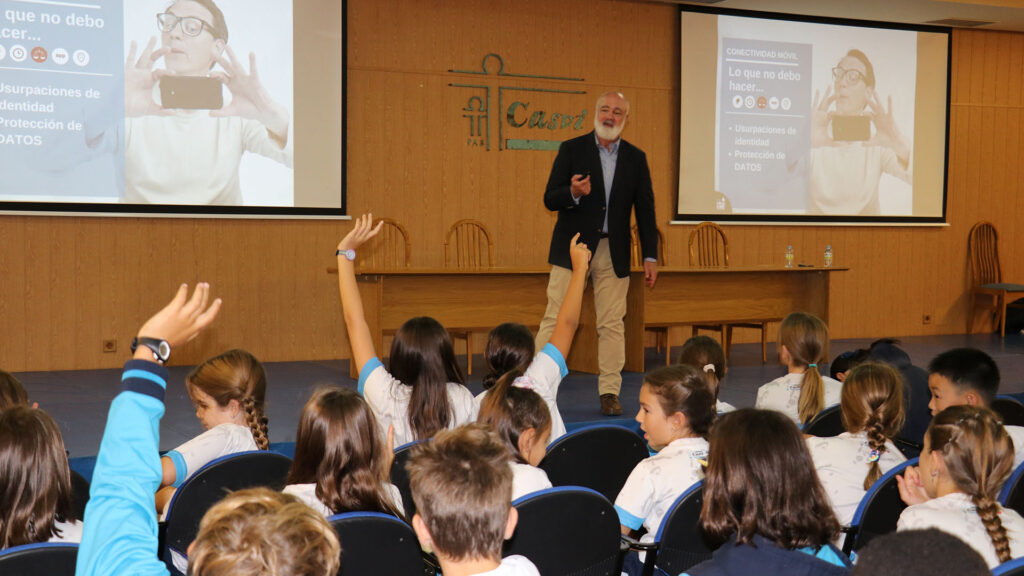
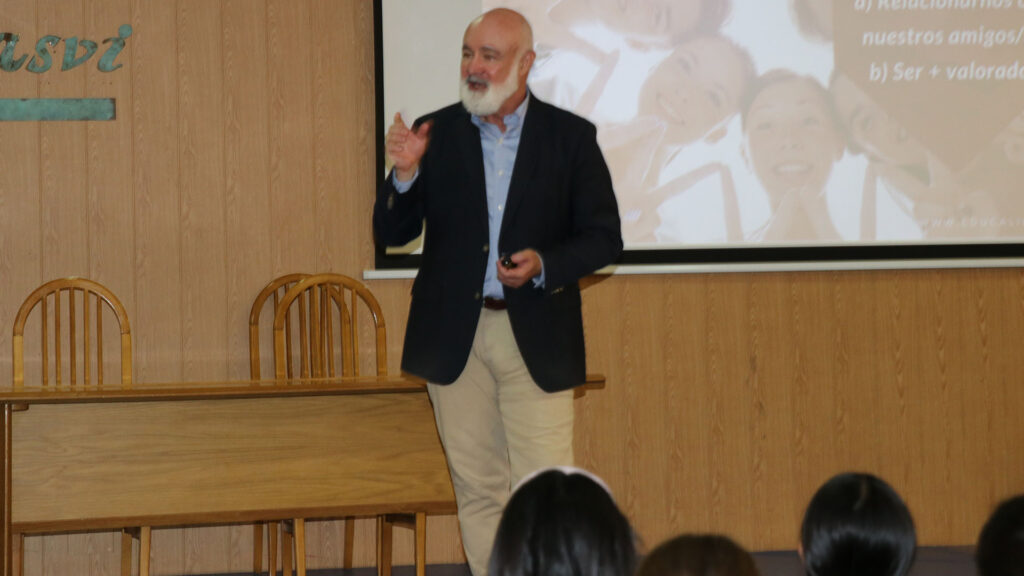
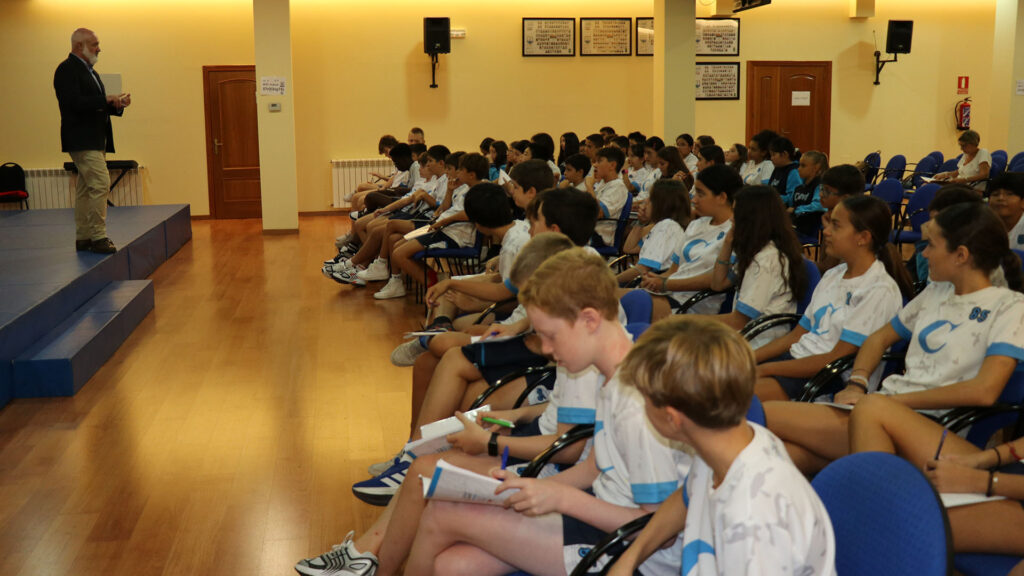
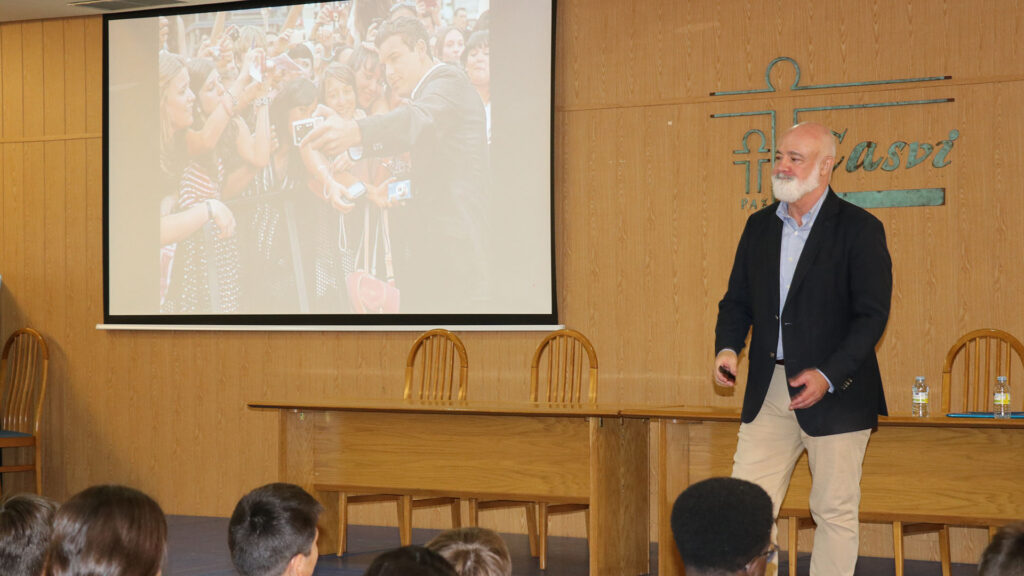
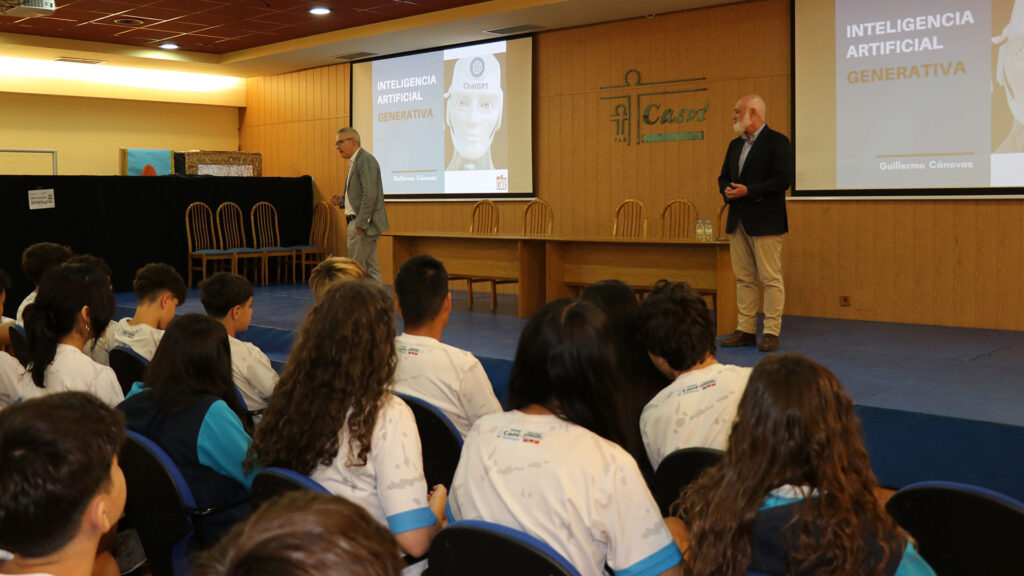
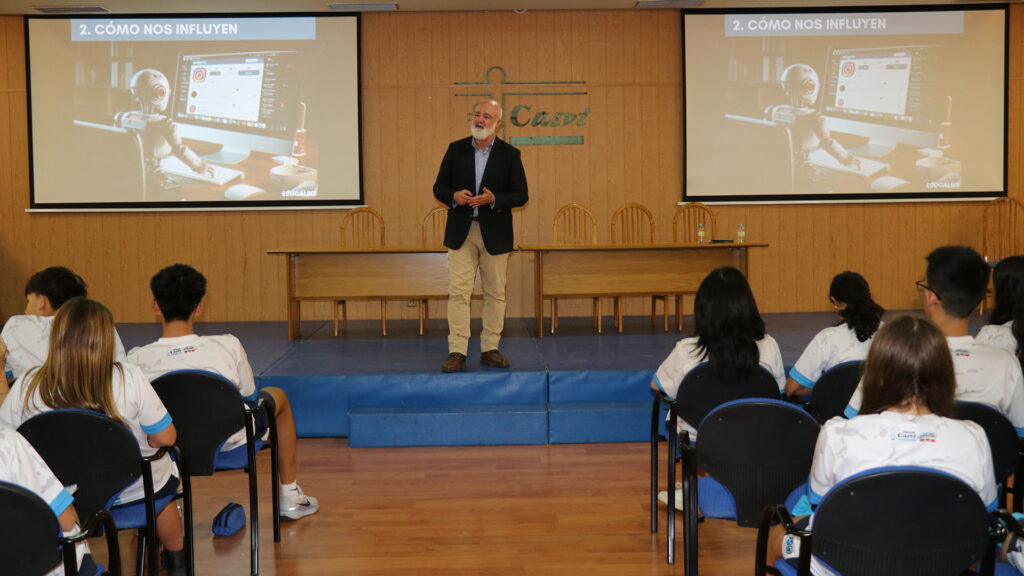
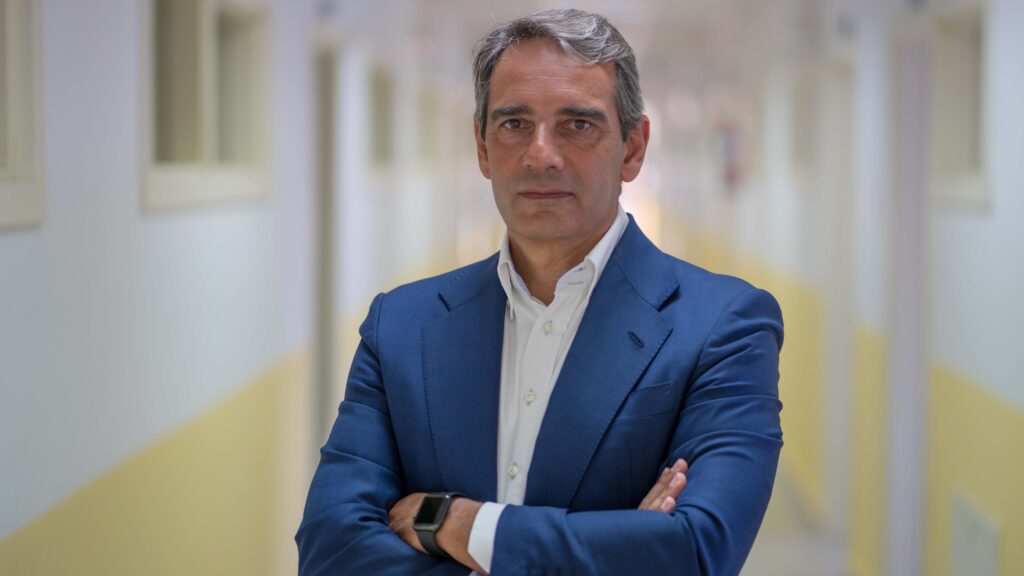
“Cybersecurity is a priority in our schools. We know that protecting our students in the digital environment is crucial. That is why we have implemented robust security measures, but we also know that the main security gap is our finger. We have to educate children in the good use of technology, always supporting and counting on the support of the families”.
JUAN LUIS YAGÜE
Principal of the International Private School Eurocolegio Casvi
WHAT IS DIGITAL HEALTH AND WHY IS IT KEY IN EDUCATION?
When we talk about digital health, we refer to the set of practices, tools and habits that ensure a balanced and responsible use of technology.
This preparation is essential in a world where mobile devices, social media and artificial intelligence are part of everyday life.
By addressing issues such as information verification, screen time management and internet risks, our students acquire the skills necessary not only for their academic development, but also for their personal well-being.
WHAT IS DIGITAL HEALTH AND WHY IS IT KEY IN EDUCATION?
When we talk about digital health, we refer to the set of practices, tools and habits that ensure a balanced and responsible use of technology.
This preparation is essential in a world where mobile devices, social media and artificial intelligence are part of everyday life.
By addressing issues such as information verification, screen time management and Internet risks, our students acquire the skills necessary not only for their academic development, but also for their personal well-being.
ANSWERING THE BIG QUESTIONS ON DIGITAL HEALTH
In this context, it is important to open the debate and provide answers to questions that shape the future of society:
How can digital health contribute to disease prevention?
Correct management of screen time or the use of wellness apps can prevent vision problems, sedentary lifestyles and stress.
What role do wearables play in digital health?
Smartwatches and activity trackers are allies in monitoring physical health and creating healthy habits.
Which digital health apps are most popular among users?
From sleep tracking apps to telemedicine platforms, the variety is growing every day.
How can digital health accessibility be improved?
Initiatives such as the Casvi Villaviciosa talks aim to bring this knowledge to everyone, regardless of age or socio-economic background. They also aim to empower young people to make informed and responsible decisions in the digital world. Activities that have also led Casvi Villaviciosa to win a prize in the 17th ICT Security Trophies of ‘Red Seguridad’.
What is the role of gamification in digital health promotion?
Applying game dynamics to digital learning motivates children and young people to acquire healthier technology habits.
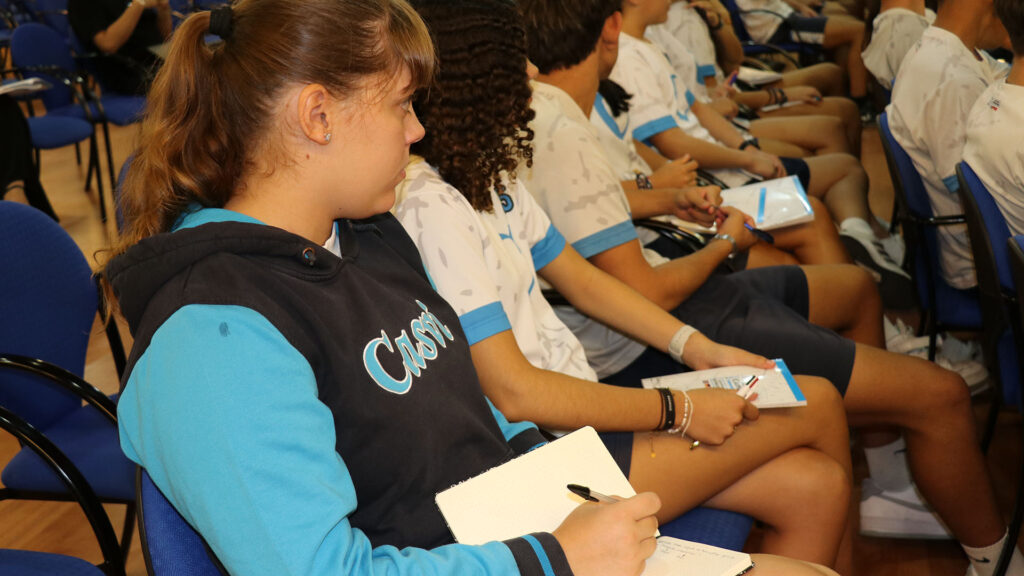
Initiatives like this not only seek to inform, but also to empower young people to make informed and responsible decisions in the digital world. Initiatives that have also led Casvi Villaviciosa to win a prize in the 17th ‘Red Seguridad’ ICT Security Trophies.
DIGITAL HEALTH
Casvi Villaviciosa: innovation and prevention in the classroom
At Casvi Villaviciosa, we understand that education in the 21st century is not limited to academic content. We are committed to training our students in key skills to face the challenges of the present and the future. Digital health forms part of this comprehensive preparation, together with our commitment to educational innovation and the responsible use of technology.

